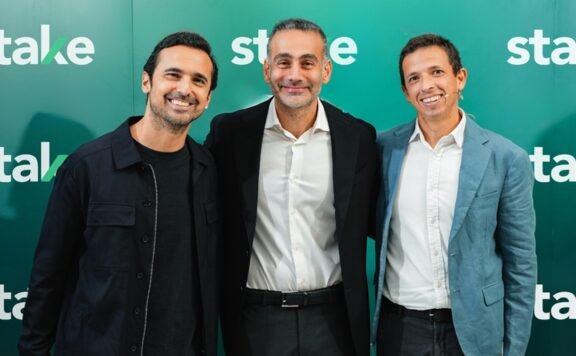Advertising players in the Middle East often rely on global trends to forecast media developments. It must be understood that most of these trends are hardly relevant to the region. It is, therefore, essential that we keep specifics in mind when it comes to predicting and planning ahead, according to Nadim Samara, General Manager, OMD Dubai.
Samara added: “The single consistent factor between all advertisers is the need for accountable and effective media and communication solutions for addressing business challenges. This will remain a key influencer in shaping the media and advertising industry in the region and worldwide.”
Samara’s comments came at a panel discussion on ‘Advertising Trends in the Arab Region: The Present and the Future’ hosted by TECOM Investments’ Media Cluster. Held as part of the ‘Thought Incubator’ series, the debate centred on the rapid shift in new platforms and creative approaches.
The panel featured high profile advertising experts including Jonathan Labin, Head of Facebook MENA in Dubai; Youssef Toqan, CEO, Flip Media; Joe Marritt, General Manager, Motivate Publishing (Abu Dhabi); Sarah Messer, Director of Media, Nielsen; Steve Smith, COO, Arabian Radio Network; and Nadim Samara, General Manager, OMD Dubai and was moderated by Mamoon Sbeih, Managing Director, APCO Worldwide – Arab Region.
Mohammed Abdullah, Managing Director of TECOM Investments’ Media Cluster, said: “We acknowledge the role of advertising in the development of the media industry. However, it is also essential to recognize that providing content that draws higher audience interest will inevitably surge advertising revenues. Additionally, both platforms require a creative approach and world-class technology. In order to enhance the media sector as a whole, dialogue is essential. TECOM Investments’ Media Cluster is committed to providing the industry with platforms such as the Thought Incubator series to discuss challenges and identify solutions.”
The print industry worldwide is currently facing challenges such as the reduction in overall advertising spend, as well as the migration of some of the major print companies to online platforms. Interestingly and in context to the region, magazines continue to enjoy robust pan-Arab circulation despite their relatively small contribution to the total print advertising spend.
According to a Dubai Press Club report titled ‘Arab Media Outlook 2011-2015’, advertising expenditure, the backbone of the media sector, dropped by 30 per cent in Egypt, 45 per cent in Bahrain and 45 per cent in Libya.
The report, however, predicted that spending on advertising will continue to grow by an average annual rate of 5.9 per cent until 2015 as a result of an anticipated economic recovery in Egypt and the growth of advertising over digital and mobile platforms.
Examining future challenges, Joe Marritt, General Manager, Motivate Publishing (Abu Dhabi), said: “As consumers of media within the Arab world become increasingly sophisticated, the challenge for all content and advertising solutions providers is to keep pace with these changing levels of aspiration and modes of consumption. The MENA region is home to more than 300 million people, and presents unique opportunities for our industry to grow and progress.”
Yousef Tuqan, CEO – Flip Media, shared: “Although the Middle East’s media landscape has been slow to evolve until now, the reality today is that no one in the media industry is immune to the changes sweeping the globe. Advertisers are becoming more demanding and consumers are becoming more fickle, and the challenge is upon everyone to evolve their offering, find new ways to grow our industry and deliver value to advertisers.”
The ‘Arab Media Outlook 2011-2015’ report also explained how the digital platform will witness the highest growth in the coming years as a sizeable population of well-informed and socially engaged young people drive consumption of media on the internet and mobile platforms.
Experts headlining the event, however, concurred that the region still faces a mismatch between the share of digital advertising in total advertising spend with regards to the relative importance of the platform from a media consumption angle. A correction of this distortion could, therefore, be the need of the hour, the panellists pointed out.
Jonathan Labin, Head of Operations, Facebook MENA, commented: “These past few years have been difficult for media organisations and advertisers. Faced with rapid change, it is understandable that some chose to wait and see how the dust would settle. However, fortune favours the bold, and those that made the leap and engaged with new mediums such as Facebook are now reaping the benefits. They understand what works and what doesn’t, how to interact with consumers, and the role that social media plays in the broader sales and marketing mix. Fortunately it is never too late to get on board, and through our presence in the Middle East, Facebook is working directly with clients to share those lessons and explore new creative opportunities.”
For the Arab television industry, audience and advertising revenues remain concentrated, more than ever, around a small number of pan-Arab free-to-air channels while the penetration of pay TV across the Arab region remains low. Conversely, ‘out-of-home’ advertising, which includes cinema advertising, remains the most stable part of the market.
According to Nielsen’s quarterly Global Ad View Pulse report, advertising spend is on the rise around the globe and across media types. Media vehicles such as TV, newspapers, radio, outdoor, internet, and cinema saw an increase in spending at the beginning of 2012 compared to last year.
Though TV continues to attract the majority of advertising dollars, internet advertising saw the biggest increases, with advertisers spending 12.1 per cent more in Q1 2012 than one year prior. During that time, ad spends overall increased 3.1 per cent globally.
Sarah Messer, Director of Media, Nielsen, said: “The Arab Spring is not the only thing changing politically and economically in front of our very eyes; the media landscape is evolving rapidly too. This is bringing with it new platforms that are converging in different ways, new channels, growing and fragmenting audiences and a deeper hunger for more content.
“However, these changes come against the backdrop of a galvanised, younger audience who want to interact with the media and have avenues to voice their opinions. All of this creates new challenges for media owners, media agencies and advertisers in staying ahead of audience mind-sets and behaviours, and in continuing to innovate and measure across this multi-format landscape in a cost effective way.”
Steve Smith, COO, Arabian Radio Network said: “Radio is no longer about what is just coming out of an FM radio receiver. Being successful in this industry is about creating great content that can be delivered across multiple platforms.”




